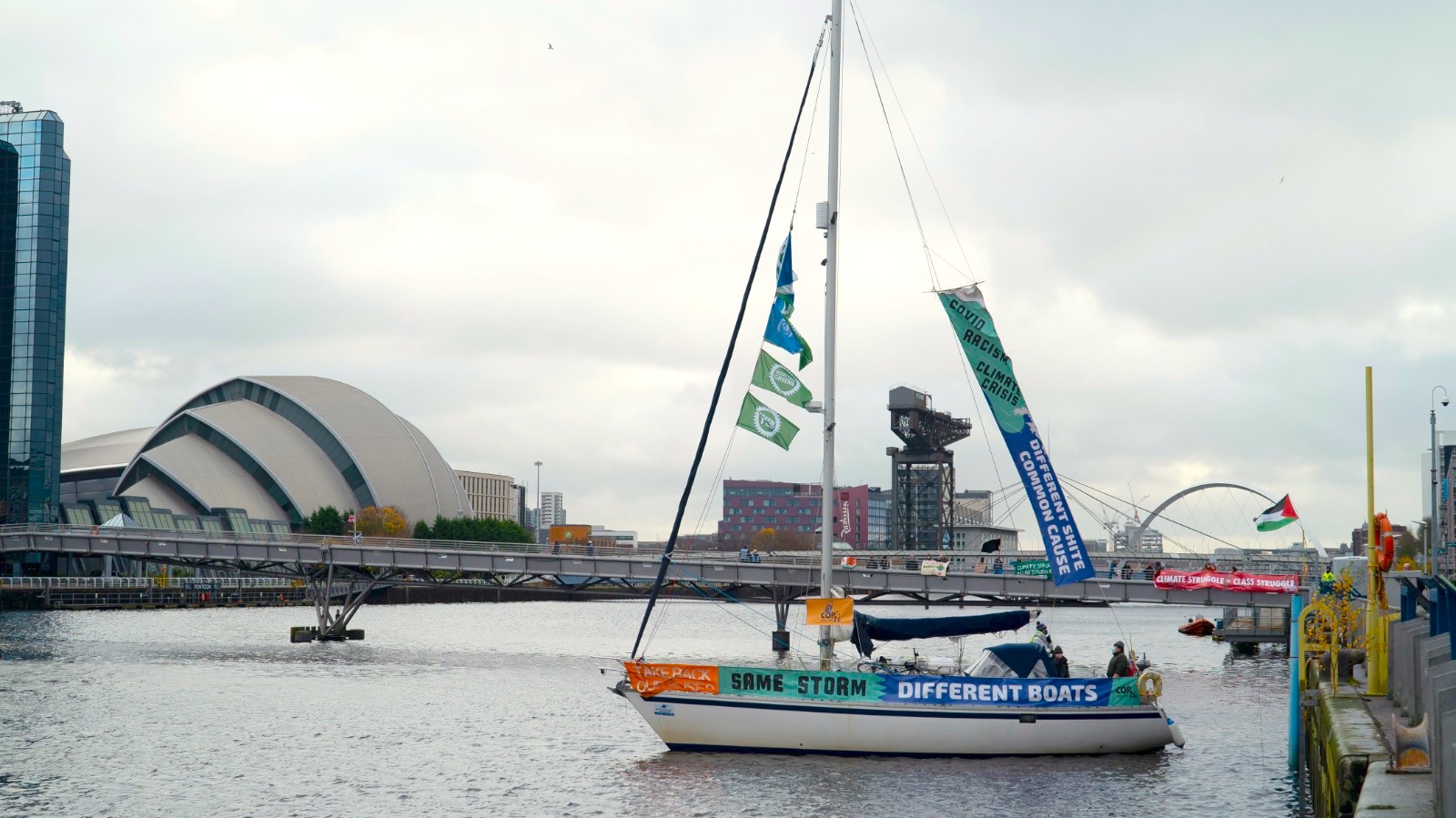Preparations are ramping up for another edition of From the Ground Up, organised by the COP26 Coalition writes Iain Bruce of ecosocialist.scot.
This event will be shorter and more focussed than its hugely successful predecessor last November. There should be two days of online sessions, on the Friday and Saturday of 23-24 April. They will concentrate on discussing strategies and planning action for climate justice over the coming months, up to and including the UN’s COP26 climate talks in Glasgow in November.
The event will begin with some kind of action or panel the day before, 22 April, which is Earth Day and the date chosen by President Joe Biden for his own Climate Ambition Summit. It will end on the Sunday with an action plenary, something like the Assembly of Social Movements that used to close the old World Social Forums.
The eighteen or so sessions are aiming for a more participatory format, to discuss strategies and forms of action in key areas around climate justice and its related struggles. These will include action within the framework of the COP26 talks themselves, for example to kick out polluting companies that seek to sponsor the summit in Glasgow, or to wring the best possible results out of the talks. But most of the sessions will concentrate on action outside, to build up the pressure for radical action now, on emissions cuts, finance for the Global South and system change. So there will be discussions devoted to organising at the intersections between anti-racism, disability rights and climate justice, on legal action, organising in the workplace, different forms of direct action and the possibilities of calling various kinds of strike action for the climate around the world in November. There will also be sessions on struggles to defend Indigenous rights and the Amazon region, on the fights over food, land and transport. Importantly, since many activists in the Coalition are based in Scotland and the event takes place less than two weeks before elections to the devolved parliaments in Scotland and Wales, there will also be a session talking about Independence and a move by climate activists to draw up a climate justice charter for Scottish Independence.
Of course no one knows exactly what will happen with the pandemic between now and November, and therefore what kind of action will be possible when world leaders are due to descend on Glasgow. The Coalition’s main plans at the moment foresee a hybrid process. More online editions of From the Ground Up are expected to coincide with the G7 meeting in Cornwall in June, and with Climate Week at the end of September. Then, in November, there could be a combination. Saturday, 6 November, in the middle of the COP26, is slated for a Global Day of Action, which might include a significant central demonstration in Glasgow, alongside decentralised protests elsewhere in England and Wales, as well as other actions around the world. The day before, Friday, 5 November, could see a call for an international climate strike, building on the experience in 2019 of the school climate strikes, but also the feminist strikes in Argentina, Spain and other countries, as well as student rent strikes, Indigenous movement “paros” and so on. Those would be followed by a 3-4 day online people’s summit, along the lines of the previous From the Ground Up events.
There is however, another possibility looming. This is that the UK government or the UNFCCC may seek to move the entire COP26 online, with no in-person event in Glasgow at all. This has caused alarm among a number of “less developed countries”, including small island states that have been so vocal at past COPs, and who won the inclusion of a “below 1.5 Centigrade” target in the Paris agreement. They see an online event as a severe disadvantage to themselves, limiting their ability to negotiate and win concessions. Their position is shared by a number of the radical NGOs that have been at the forefront of lobbying and protesting around the COP process for many years, who also fear the pressure from civil society would be removed. Some of these are therefore arguing that in such a situation, it would be better to demand the COP be postponed again. There is not a consensus on this, however. Either way, if the COP26 were to happen partly or entirely online, the hybrid, decentralised form of protest already being planned would become even more important.




